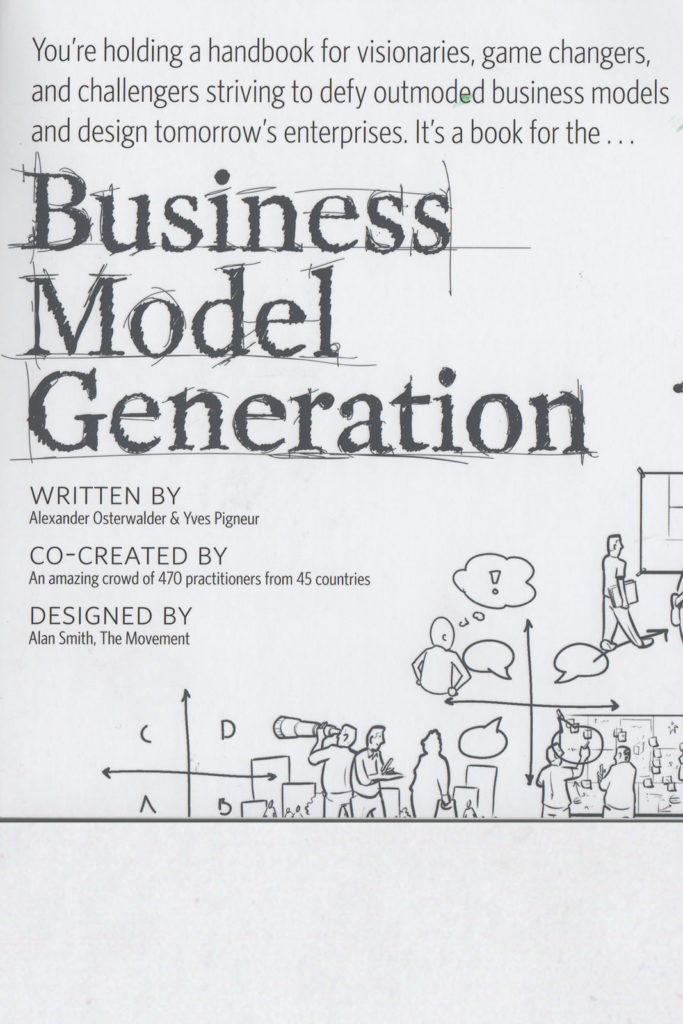
BUSINESS MODEL GENERATION
- Author: Alexander Osterwalder
- Pages: 276
- Date Published: 2010
Book Summary:
The business model canvas, which is the heart and soul of this book, is a one page overview of a new business, venture, endeavor or undertaking. It is at this point, the best way to articulate the biggest most important moving pieces of your business on one sheet of paper.
Favorite Quote:
“A business model [canvas] describes the rationale of how an organization creates, delivers, and captures value.” ~ Alexander Osterwalder
Part 1: Canvas
This part contains three sections and includes a complete walkthrough of each and every section of the business model canvas and how you might go about best using each.
- Business Canvas Definition
- The 9 Building Blocks
- The Business Model Canvas Template
Part 2: Patterns
This book part discusses patterns, which are business models with similar characteristics, similar arrangements of business model Building Blocks or similar behaviors. This book part includes five sections.
- Unbundling Business Models
- The Long Tail
- Multi-Sided Platforms
- FREE as a Business Model
- Open Business Models
Part 3: Design
This book section describes a number of techniques and tools from the world of design that can help you design better and more innovative business models. This section is broken into six subsections.
- Customer Insights
- Ideation
- Visual Thinking
- Prototyping
- Storytelling
- Scenarios
Part 4: Strategy
This book section is about re-interpreting strategy through the lens of the Business.
- Model Canvas
- Business Model Environment
- Evaluating Business Models
- Business Model Perspective on Blue Ocean Strategy
- Managing Multiple Business Models
There’s not a single business model … There are really a lot of opportunities and a lot of options and we just have to discover all of them.” ~Tim O’Reilly, CEO, O’Reilly
Part 5: Process
This book section is all about putting it all together. Taking all of the information from the first four book parts and synthesizing it into a generic, process adaptable model you and your startup or organization can use for your specific needs.
